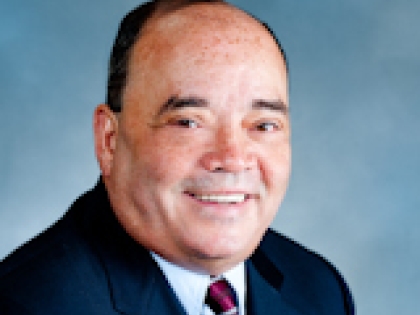
Reform means more than Koch's pledge
Former New York City Mayor Ed Koch has undertaken a worthy effort to reform state government, but his approach is fundamentally flawed. In fighting for independent redistricting, responsible budget and ethics reforms, Koch is propping up those who have stood in the way of serious reform for decades, while forcing those with actual reform records to defend themselves against those who have done little more than sign a piece of paper.
Talking about an issue is nice, but for the voters of this state, action speaks louder than signing an ex-politician's pledge.
Undermining the effort to enact these reforms, the Koch pledge was signed by each and every Senate Republican who drew the most partisan district lines in history following the 2000 census. Perhaps their newfound desire to reform the process is sincere. Perhaps those who signed this pledge only want us to forget they also signed off on the very practices that has given Albany the reputation that others are working to rebuild.
Real reform is bringing public authorities out of the shadows, protecting taxpayer dollars, nonpartisan budgeting, and securing equitable resources for every member of the Senate so that those who disagree with leadership don't live in fear of losing legislation, staff and the ability to support their constituents. These fundamental changes were ignored until Senate Democrats took the majority last year.
The primary focus of this pledge is nonpartisan redistricting. As the state Senate co-chairman of the Legislative Task Force on Demographic Research and Reapportionment, I have introduced legislation to make New York's redistricting process more open, accountable and free of partisan politics. These bills seek to increase public participation in the decennial redistricting process, to end the pernicious gerrymandering of districts and remove the ability of any one political party to disenfranchise voters through the illicit redrawing of legislative lines.
No one knows this better than Koch and the Senate Republicans. When he was mayor in the early 1980s, Koch was sued by voting rights groups for approving an egregious redistricting plan that was found to discriminate against minorities throughout the city. That happened to be when Senate Republicans also controlled redrawing their own district lines across the state.
Legislative districts of the past intentionally underrepresented thousands of New Yorkers through districts drawn with regional bias, completely disregarding community makeup and diversity, as well as local and jurisdictional boundaries. In 2002, Senate Republicans drew their districts smaller and democratic districts larger. For example, Sen. Dale Volker's suburban Buffalo district had 294,000 people, including more than 8,000 prisoners. By contrast, Queens districts were drawn with 318,000 people each, the largest in the state.
What we need to do is implement a plan that fully complies with the state constitution, the federal Voting Rights Act and objective criteria to ensure fair districts that are reflective of New York's changing demographics.
Several members of the Senate majority who are proven reformers have signed Koch's pledge. Several proven reformers have not, however. Despite supporting these measures, we believe this pledge is nothing more than an attempt to erase the legislative histories of those who have opposed reform in the past.
Reform will happen, and has happened. It did not start with Koch's deadline this summer, but years ago when Democrats were in the minority. Now we're finally breaking through the Republican blockade to give New Yorkers an open and accountable government. And when we hold a larger majority, and can override Republican hurdles, we will accomplish even more. That is our pledge.
Martin Malave Dilan is a Democratic state senator from Brooklyn.

